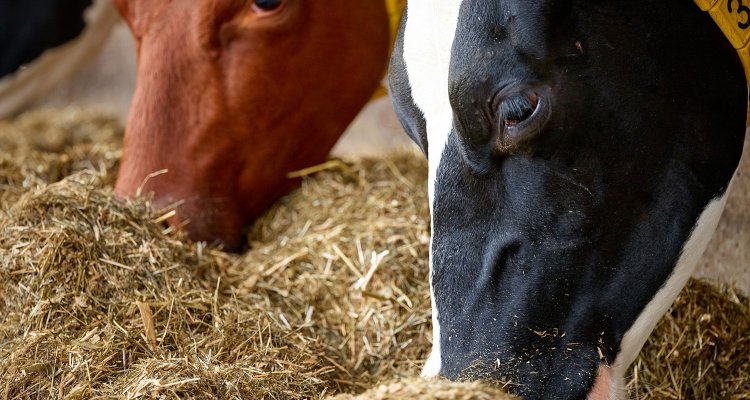
News
New project assesses methane mitigating feed additives and fat supplements
An ambitious project has been launched focussing on assessment of efficacy of methane mitigating feed additives and fat supplements in dairy production. With the pressing need for reliable efficacy estimates in farming practices and national inventories, this project integrates state-of-the-art model development with simultaneous experimental testing of additives.
Challenge
The Global Methane Pledge launched at COP26 catalyses action to slash methane emissions by at least 30% below 2020 levels by 2030. Feed additives can play a significant role in achieving this target. Yet they hardly receive attention in current assessment tools and national inventory schemes. To overcome this, a consortium of private companies and Wageningen University & Research joined forces. Their goal? To better quantify the contribution that feed additives have in reducing enteric methane emissions in dairy cows.
Goal and impact
The project builds upon recent achievements in the use of several feed additives and supplements to mitigate enteric methane emissions. This prompted the need to assess the variability in their efficacy when applied in practice. It is imperative to gain a deeper understanding and quantification of the variations in efficacy across different production conditions. Merely relying on average reduction estimates in a generic manner may not suffice, especially if individual farmers are to receive individual rewards for adopting mitigation strategies. Also, it is essential not to overlook the distinct modes of action of different types of feed additives when amalgamating them together and still assuming their efficacy’s to be cumulative. Each type has its own specific details to be handled and investigated, and all stakeholders in the dairy chain need to be able to weigh these details against each other, and against other management options.
Approach to solution
The project contains three elements. A PhD project has been initiated to employ a modelling approach. This aims to improve the quantitative understanding of the mode-of-action and sources of variation in the efficacy of feed additives and supplements. An extant model used as a Tier 3 approach in the Dutch greenhouse gas and ammonia emissions inventory will be expanded. This approach is selected as an alternative to the extensive testing that would be necessary to consider all possible conditions and combinations of additives.
The second element involves the experimental evaluation of a combination of feed additives and supplements. This information is essentially lacking at the moment, and it may serve as a valuable set of data to evaluate the predive capacity of the expanded model.
The third element entails providing feedback to private partners, stakeholders in the dairy production chain, and the Dutch government. This feedback will indicate how the information and knowledge gained from the project is best used in assessing the impact of feed additives and supplements.